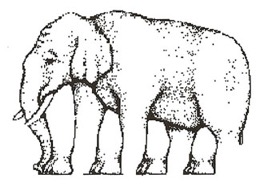ExpertTeasers

These adventures almost never turn out well. Often, it seems, the clueless decision maker will amplify his own cluelessness by engaging his expertise. Some manage to transcend this downward trend, though this seems to demand an almost inhuman ability: the unlikely ability to demonstrate expertise in NOT being an expert.
This might be the great unspeakable skill. We hire for expertise, then assign our carefully selected expert to work on stuff his expertise at best only partly prepares him for. The gap will not be bridged with quickly assembled expertise, because expertise just simply does not come in any instant variety. In real time, that gap might reasonably be acknowledged and accepted, but never personally bridged. The expert at not being an expert somehow recognizes this humbling fact and adapts accordingly.
Woe to those who carry rules forbidding them from appearing weak or vulnerable. These rules might have been honestly inherited or innocently self-imposed, they might even seem a necessary part of any great leader’s arsenal, but they carry a sharp and imposing downside when (I said “when” not “if”) encountering that gap.
The downfall seems inevitable without exhibiting something like the opposite of the hired-for expertise. While this might well feel like an impossible demand, most everyone else in the room already knows (or certainly suspects) exactly where the edge of their leader’s expertise lies. The expert at being an expert’s often the last to know what everyone else long-ago already figured out.
I find an atmosphere of terror within organizations lead by mere experts at being experts. Those experts’ words and music don’t seem to match, and most tip-toe around in response to the cacophony, smothering in the threatening ambiguity or feared catastrophe, and feeling fairly powerless to do anything but hold on to the old hat while cringing down for the wild ride. Curiously, while the expert at being an expert might feel as though he protects his team by standing up straight and tall, I was imperiling it instead. Imperiling myself, too.
I admit now that I had some competency issues when I was just an expert. I felt that it might reflect badly on me and my profession should I exhibit vulnerability, so I reflected badly by refusing to exhibit that vulnerability. I could not even admit my vulnerability to myself, so this was no real stretch.
Now, finally, a card-carrying expert at not being an expert, I might coach my prospective client to watch for the moment, almost certain to come, when he sees me doing something so brainless that he’s convinced he hired a complete dunce rather than a recognized expert. “What we decide to do then will determine the success of this engagement,” I tell him. I’m indifferent whether that prospective client believes this or goes off in search of a ‘real’ expert. I’d rather not work with someone who hasn’t yet learned to appreciate the value of expertise at not being an expert, but insists upon only someone who can be a fully-functioning expert at being an expert all the time. I don’t believe that there IS such a thing as a full-time, fully functional expert, just ExpertTeasers; aka: amateurs, and the many apprentice, journeyman, and master experts at not being an expert.
©2014 by David A. Schmaltz - all rights reserved


